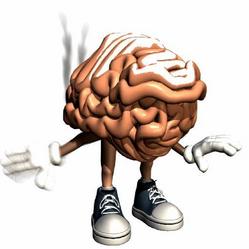
World Alzheimer's Day was observed September 21. Alzheimer's disease (AD) is the most common cause of dementia.
The cause of AD is still unknown but Alzheimer's cases double every five years after age 65, and people with a family history of the condition have been diagnosed with it (although rarely) as early as age 30. Although the risk of AD increases with age, it is not a normal part of ageing.
Memory loss and decline in learning ability may increase as we age, but these normal changes do not affect how we function. In AD and dementia, there is a very serious decline in mental ability. Our memory, thinking, judgement and ability to pay attention and learn are impaired. In AD, parts of the brain degenerate, destroying cells and reducing how well the remaining cells respond to chemicals which transmit signals.
Forgetting people, places
Self-care becomes a challenge with AD, and we forget to do simple things like brushing our teeth, combing our hair or eating. Eventually, we cannot recognise familiar people and places. Then we begin to have problems speaking, understanding, reading or writing. Personality changes eventually occur and people living with AD become anxious and aggressive. In fact, in late-stage AD, the patient's inability to remember people, places, events, coupled with the personality changes, makes him or her a whole new person, only recognisable by his or her physical features. We are what we remember.
Alzheimer's disease can be overwhelming for the person living with it and for his or her caregiver. Caregiving by spouses and other family members eventually becomes the treatment for the disease and must be carefully managed. Security becomes important, too, since people with AD are likely to wander away from home and get lost.
Early diagnosis, treatment

Early diagnosis offers the best chance to treat the symptoms of AD. Diagnosis and treatment should be done by a medical specialist, experienced in managing AD such as a gerontologist (specialist in ageing and problems of the elderly), neurologist (specialist in the nervous system and its disorders) or a psychiatrist (specialist in mental disorders).
There is no cure for AD, and no treatment can stop it. However, drug treatment is available which may help prevent some symptoms from becoming worse for a few years. Treatment is started at a low dose followed every few months by the specialist's assessment to see whether the drug is working and whether it is worth continuing the treatment. About half those treated will show some improvement. Alertness is increased and the rate of deterioration of the disease is slowed down.
The drugs currently available are Donepezil (Aricept), Rivastigmine (Exelon) and Galantamine (Reminyl). These products are ridiculously expensive for the general public and especially for the elderly who are usually pensioners. The retail price per tablet ranges from about $195 each to a whopping $610 each.
Unfortunately, the National Health Fund does not yet subsidise these drugs. On average, patients with AD live for eight to 10 years after they are diagnosed, but others have lived up to 20 years. During the final stages of AD, care and treatment are centred on relieving discomfort.
Dahlia McDaniel is a pharmacist and final year doctoral candidate in public health at the University of London; email yourhealth@gleanerjm.com.

